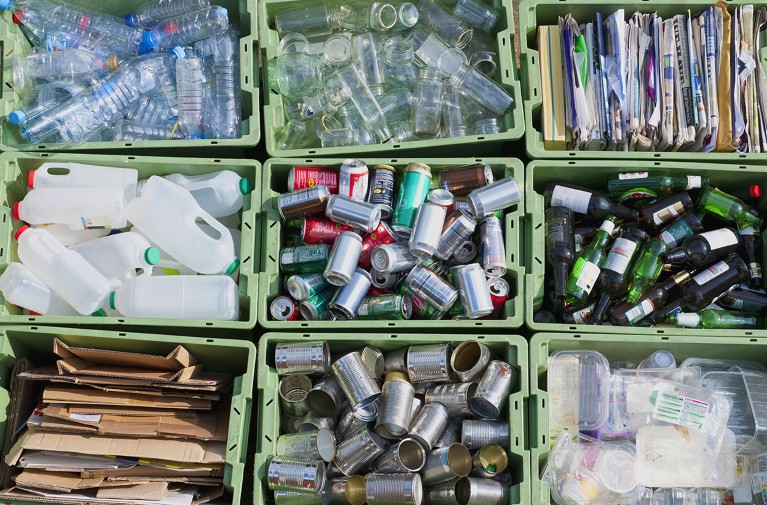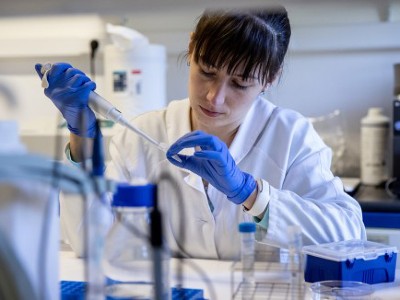
In search of better real-world affect as a circular-economy researcher, Julian Kirchherr now works throughout administration consultancy and academia.Credit score: Jacobs Inventory Pictures/Getty
After I was rising up, many youngsters dreamed of turning into a chief government, however I at all times needed to be a professor. I imagined writing papers that may form how companies function and the way governments suppose. However roughly a decade later, as a 28-year-old assistant professor of enterprise sustainability, I discovered myself standing for too lengthy within the bathe someday, feeling crushed down and customarily uncontrolled. I used to be caught in a system that demanded ever extra grant purposes and extremely cited papers.
It was September 2017, 9 months into my tenure-track place at Utrecht College within the Netherlands, and I had simply printed an evaluation of lots of the methods during which the round financial system has been conceptualized1. The circular-economy mannequin is broadly about utilizing sources extra effectively to assist sustainable improvement, though interpretations differ. Many praised my article as essentially the most nuanced evaluation of the idea up to now. But, to me, it encapsulated every thing I discovered irritating about academia: students had been applauding conceptual work, however I needed to have real-world affect. There needed to be a greater approach.
Careers recommendation from scientists in trade
Earlier in my profession, I had labored as a administration marketing consultant on the Berlin workplace of a agency referred to as McKinsey, which had helped to fund the PhD I wanted for a profession in academia. Regardless of some preliminary scepticism, I got here to admire the corporate’s results-driven tradition. Consultants, regardless of all of the jokes, should ship affect, or they don’t seem to be employed once more. So, in early 2018, 14 months into my tenure-track publish, I resigned and returned to McKinsey.
However my resignation from academia was solely partial. I had secured analysis funding, which gave me the pliability to barter a ten% tutorial position at Utrecht. And that’s how my life as a ‘pracademic’ started.
A foot in each camps
A pracademic is somebody with one foot in academia and the opposite in apply, and I stumbled throughout the time period someday whereas procrastinating on LinkedIn. Though new to me then, the time period has been round for a minimum of 25 years.
After I rejoined McKinsey, I began in a comparatively junior position. At first, I saved my tutorial work largely quiet. Consulting has an all-in tradition, and I nervous {that a} aspect gig would possibly increase doubts about my dedication. Solely in late 2022, after being elected a associate who holds fairness within the agency, did I start to talk overtly about my twin path.
That shift helped to unlock synergies between my roles. Some concepts I explored on the college began to form my consulting work — and vice versa. Nonetheless, it didn’t begin out this manner. Initially, I had imagined carving out Fridays for analysis, hoping that insights from these days would inform my consulting work within the week that adopted. However that plan shortly unravelled. Consulting is unpredictable, and Fridays hardly ever stayed free for analysis.
And few purchasers had been keen on my circular-economy work, so I developed experience in a really totally different space. Certainly one of my first initiatives after returning to McKinsey concerned serving to a authorities to rethink how you can appeal to and retain expertise within the public sector — together with how you can design profession paths. Unsurprisingly, I advocated better flexibility. These matters caught with me, and at the moment I largely concentrate on what McKinsey calls ‘individuals and organizational efficiency’.
Constructing a round financial system
Though most of my consulting work has little to do with my tutorial analysis, I worth being a pracademic. Above all, I recognize the liberty to observe concepts that genuinely curiosity me — and I really feel most alive as a scholar when writing about them. A few of my work is extremely utilized. For instance, I’ve collaborated with the European Fee on making the hydrogen ‘worth chain’ extra round2, which is integral for Europe’s decarbonization targets. The worth chain covers every thing concerned in hydrogen manufacturing, together with the tools used alongside the way in which. The challenge explored measures similar to setting recycling targets for uncommon metals — together with iridium, which is important for hydrogen manufacturing.
Residing in two skilled worlds additionally sparks contemporary concepts for my analysis. At McKinsey, I often assist organizations to develop talent taxonomies — frameworks that outline the important office competencies that staff must carry out successfully of their roles. That work impressed a analysis paper on talent taxonomies for companies transitioning to a round financial system3. A number of corporations now use it to form job adverts and coaching programmes.
Taking a prod at ‘productiveness’
Being a pracademic has additionally allowed me to be extra controversial. My most-read paper — titled Bullshit within the Sustainability and Transitions Literature: A Provocation4 — mocks the tendency of many students to chase citations over real perception. Quite a few teachers praised it, however some discovered it too harsh. Had I stayed on the standard tutorial path, I may need been too cautious of that criticism to put in writing the article in any respect.
Maybe due to this freedom, I’ve additionally had tutorial success: my Google Scholar profile is approaching 20,000 citations, and Stanford College’s database ranks me within the prime 1% of scientists globally by way of quotation affect. Extra meaningfully, my analysis has been featured in additional than 200 coverage stories by establishments together with the United Nations Surroundings Programme, the World Financial institution and the Organisation for Financial Co-operation and Growth.
I preserve that my tutorial work provides a robust return on funding for any college that retains me on the payroll. At McKinsey, the worth is likely to be much less apparent at instances, given my content material focus, though sometimes I develop consulting work that’s rooted in my analysis. As an illustration, some months in the past, I proposed to the governing physique of a big metropolis a challenge to rework it right into a ‘round metropolis’ — an concept that these concerned have now agreed to pursue. The work will concentrate on lowering using sources and bettering reuse and recycling, drawing on insights from a analysis challenge that I proceed to guide.



